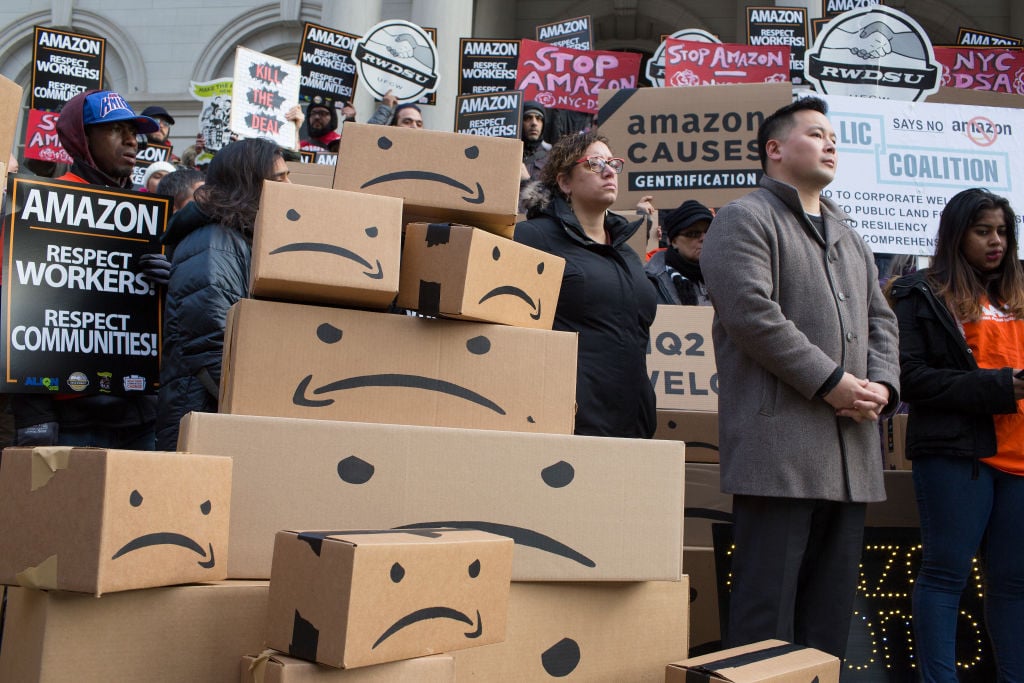
In the face of strong opposition from local politicians and community groups, the online retail giant Amazon dropped its plan to open a sprawling campus in the Queens neighborhood of Long Island City. The move would have effected scores of artists with studios in the area, and numerous cultural institutions based in LIC, and drew enthusiasm as well as protest.
According to the New York Times, New York governor Andrew Cuomo and New York City mayor Bill de Blasio courted the retailer with a lucrative subsidies package in a deal that promised to create more than 25,000 jobs. Despite support for the company, critics voiced concerns ranging from Amazon’s anti-union labor practices to the prospect of gentrification.
One prominent critic, state senator Michael Gianaris, told the Times that Amazon’s decision to withdraw from the deal revealed its unwillingness to properly engage with the Queens community.
Alongside community groups, artists and art workers had been among the prominent critics of Amazon’s potential effects on the neighborhood. A group calling itself Bad Barcode, consisting of “NYC Cultural Workers Against Amazon,” put out a 50-age dossier gathering research on the company’s practices. The Artist Studio Affordability Project (ASAP), a group that advocates for artists, had put out a “Pledge” encouraging artists not to work with Amazon, stating, “[w]hat’s bad for the community of LIC, the working poor and the working class is also bad for artists.”
Artist William Powhida, who keeps a studio in Long Island City and has worked with ASAP, hailed Amazon’s withdrawal.
“I am elated that grassroots, local activism from a broad array of organizations in Queens and throughout the city led Amazon to pull out the secret deal made by Governor Cuomo and Mayor Di Blasio to bypass democratic processes in New York City,” he told artnet News in an email. “It is a major victory for democracy and has put the needs of New Yorkers in the national spotlight, from affordable housing to public transportation to quality education to labor rights.”
Artist and anti-Amazon activist Kenneth Pietrobono also welcomed the news, calling for more diligence in the future. “If there is anything to learn from this, it is the weakness of our existing checks and balances to provide an actual public process,” he told artnet News in an email. “As long as groups like the Empire State Development Corporation retain the power to create these kinds of debts and incentives without oversight or public review, this will happen again.”
Nat Roe, director of Flux Factory, a non-profit that supports emerging artists said, also looked to the future: “It’s inspiring to witness effective activism and politicians who get their constituents. But before all this Amazon drama LIC was already the fastest growing neighborhood in the US, so the long-term fight against displacement persists.”
Various Queens institutions including the Sculpture Center, the Noguchi Museum, and the Socrates Sculpture Park declined to comment on Amazon’s decision not to move its offices to Long Island City.